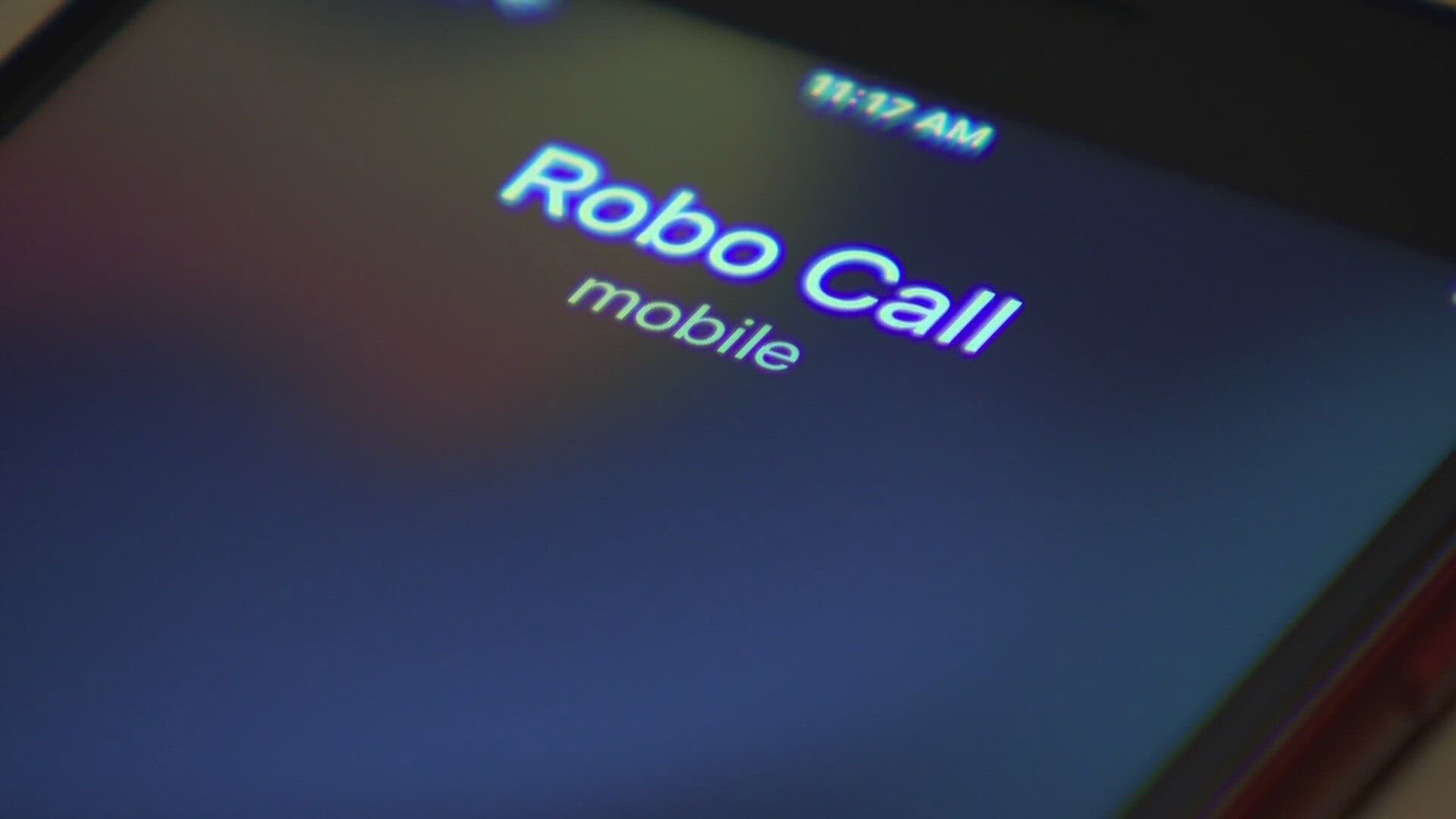COLUMBUS, Ohio — Columbus resident Brenda McQuire has had it with robocalls.
“I said, 'What is it going to take for you to stop this?'” she said.
She’s received so many unsolicited calls that she created an Excel spreadsheet to track them.
In the past month, her list now has 74 calls on it. She says when she tells the caller she’s not interested in what they are selling, “they were just insistent.”
She’s far from alone in this struggle with robocalls.
Ohio ranks No. 2 in the nation when it comes to robocall complaints, according to the most recent figures from the Federal Trade Commission.
“I think it's criminal what they're doing,” said Delaware County resident John Barnett.
According to the FTC, last year Delaware County ranked number one in the entire state for the most complaints about robocalls. These are complaints from people whose numbers are on the Do Not Call Registry.
As of April, 4 billion robocalls were placed in the U.S., according to Robocall Index. That’s nearly 2,000 calls per second or about 13 calls per person. Columbus ranks No. 19 for the most robocalls in the U.S., making it higher than any city in Ohio. Cleveland ranks No. 32, Dayton clocks in at No. 73 and Cincinnati is at No. 80.
There were 51 billion robocalls in the U.S. last year. Since 2002, the FTC has levied $134,958,210 in civil penalties for those caught making robocalls.
Ohio was at the center of a massive robocall investigation during the 2020 election.
Jack Burkman, of Virginia, and Jacob Wohl, of California, were charged with voter intimidation.
Prosecutors said Wohl and Burkman sent out thousands of robocalls targeting Black voters in Cleveland. The calls delivered pre-recorded messages that falsely warned people that if they voted by mail, their information could be used by law enforcement, collection agencies and the Centers for Disease Control and Prevention to pursue old warrants, collect outstanding debts and track people for mandatory vaccines.
Prosecutors said 8,100 of the calls went to three zip codes with large Black communities located in Cleveland and east Cleveland.
“One of the biggest misconceptions about the national call registry, is that it's going to magically stop all of your telemarketing calls and robocalls,” says Doc Compton, who authored the manual “Robocalls for Cash.”
The 78-page manual teaches people how to turn the tables on robocallers and force them to pay. Consumers learn how to keep telemarketers on the line so they give you the company they work for, their mailing address and other items you need in order to file a demand letter.
Under the Telephone Consumer Protection Act, consumers whose numbers are on the Do Not Call Registry are allowed to seek compensation if someone calls their number.
“I've helped tens of thousands of people collect tens of millions of dollars from illegal robocallers and telemarketers. The only way that will make these calls stop is for you to take action, take their money and teach them a lesson” Compton said.
10TV spoke to Isaac Brewster who put the manual to the test. He said he forked over the $50 to buy the booklet after his phone wouldn’t stop ringing from telemarketers.
“I'm looking to have made between $30,000 to $35,000 thousand dollars,” he said. “Getting the mail never felt as good when you've got a $10,000 dollar check in there.”
There are also much simpler ways to attack the telemarketing calls.
What You Can Do:
If you have an iPhone, go to "Settings" and then scroll down to "Phone." Scroll down further until you see "Silence Unknown Callers" and turn it on.
If you have an Android phone, the settings may vary depending on the age of your phone. Go to "Settings", then "Block Numbers" and turn it on. Tap the number you want to block and find the command that says block and/or report as spam. Confirm the request to block the number.
Arm Your Phone:
AT&T provides ActiveArmor for blocking spam calls. The free version will filter out potential fraud and spam calls, will label telemarketers and similar companies as "nuisance calls," and sends unknown callers to voicemail. For $3.99 per month, ActiveArmor Advanced Mobile Security will perform identity monitoring, reverse phone lookup, caller ID, and safe browsing features.
Verizon Wireless offers a free call filter for customers with compatible phones and postpaid plans. The free service detects and filters out spam calls. It alerts you when an incoming call is likely spam, lets you report unsolicited numbers, filters out numbers with the same first six digits as yours and blocks robocalls based on your level of risk. You can pay $2.99 a month per line which will allow you to customize the Call Filter to create your own personal spam list.
Filters:
iPhone users can download the Call Filter app from the App Store. The app should be pre-loaded on Android devices. If not, download it from Google Play.
Other services like Robokiller block spam calls. The app's Answer Bots will automatically answer spam calls with pre-recorded messages designed to frustrate them and waste their time. You can even create your own bot responses.
Truecaller for Android phones also works to block spam calls and text messages. The app identifies each incoming call—especially those from unfamiliar numbers—so you know whether or not it's real. It can automatically block unwanted calls based on known spammers, as well as numbers you manually add.
How To File a Complaint:
You can register a complaint to the FTC by calling 1-888-382-1222.
Contact the Ohio Attorney General's Office at 800-282-0515 or file a complaint at www.ohioprotects.org.
You can register your phone on the Do Not Call Registry here.
To avoid unwanted calls from electric and natural gas marketers, contact your utility company to be placed on the utility’s do not contact list. Joining this list should always be free and can reduce sales calls from marketers.

